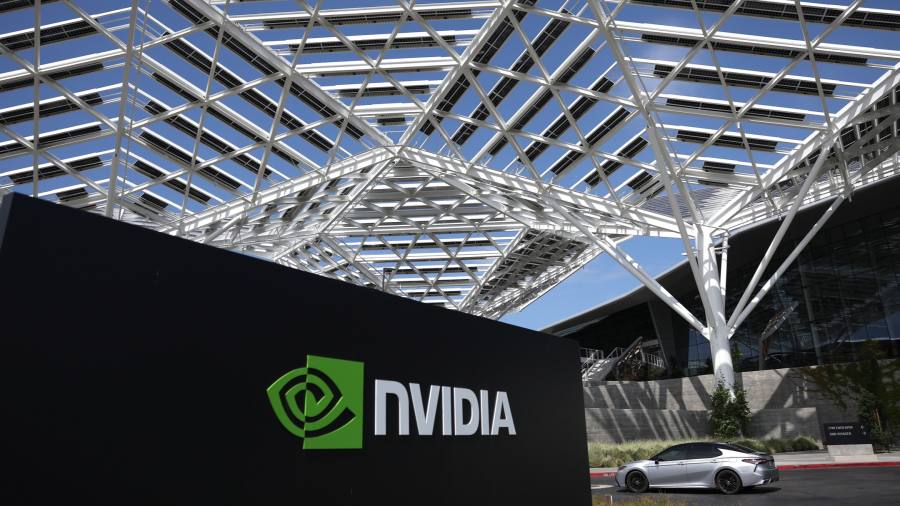Receive free IPOs updates
We’ll send you a myFT Daily Digest email rounding up the latest IPOs news every morning.
Chip designer Arm is in talks to bring in Nvidia as an anchor investor, while the SoftBank-owned company presses ahead with plans for a New York listing as soon as September, several people briefed on the talks said.
Nvidia, the world’s most valuable semiconductor company, was forced last year to abandon its planned $66bn acquisition of Arm after the deal was challenged by regulators.
The Silicon Valley-based chipmaker is one of several existing Arm partners, including Intel, that the UK-based company is hoping will take a long-term stake at the initial public offering stage, according to the people.
The prospective investors are still negotiating with Arm over its valuation. One person familiar with the discussions said Nvidia wanted to come in at a share price that would put Arm’s total value at $35bn to $40bn, while Arm wants to be closer to $80bn.
The aim of bringing in large anchor investors as Arm launches an IPO in New York would be to help to support the stock as SoftBank, which bought Arm for £24bn ($32bn) in 2016, sells down its stake.
Many private tech companies and their advisers are watching closely to see if Arm can succeed in launching its IPO in 2023 after a year-long slump in new listings.
Securing the advance support of a few anchor investors is a popular tactic during difficult IPO markets, serving as a way to ensure demand and reassure other potential investors.
Arm and Nvidia declined to comment. A person close to the situation said the talks had not been concluded and might not lead to an investment.
Arm is expected to be the most valuable company to go public in the US since automaker Rivian, which listed with an initial market capitalisation of $70bn in late 2021.
It is widely considered to be a less risky prospect than many IPO candidates given its previous record as a public company.
People close to SoftBank said its founder Masayoshi Son has been personally involved in seeking anchor investors for Arm. Son has been focusing on expanding the chip designer’s revenue ahead of its IPO. SoftBank declined to comment.
Arm and Nvidia have contacted regulators in the US to smooth over any potential concerns about what is likely to be a small minority investment, in the low hundreds of millions of dollars, according to people close to the discussions.
When Nvidia first announced plans to take over Arm in September 2020, competition authorities in the US and Europe objected. They said the deal might restrict rivals’ access to Arm’s intellectual property, which can be found in the vast majority of smartphones and a growing portion of the automotive market, as well as give Nvidia access to competitively sensitive information.
Nvidia is already an Arm customer but its talks to invest in the company point to bigger ambitions to expand from its core business in “graphics processing units” — dedicated chips for accelerating specialised tasks, including 3D rendering and training artificial intelligence — into the “central processing units” that handle most other computing functions.
One person familiar with the plans said Arm was keen to bring in Nvidia in its bid as a way to position AI as central to the UK group’s growth plans. “AI will be every third word in the offering document,” the person said. “Nvidia is so important as its involvement implies AI.”
The move would bring Nvidia into closer competition with Intel, whose CPUs have long dominated the PC and data centre markets.
Nvidia, which became the first chipmaker to hit a $1tn valuation in May, recently produced its first CPU using Arm’s designs as part of a so-called superchip, dubbed Grace Hopper and designed for artificial intelligence and high-performance computing.
Global listing volumes plummeted last year as investors were put off by falling stock prices, rising market volatility and the uncertain economic outlook. However, activity has begun to pick up in recent weeks, thanks in part to a broader upswing in stock prices led by Nvidia.
Additional reporting by Richard Waters
Read the full article here





